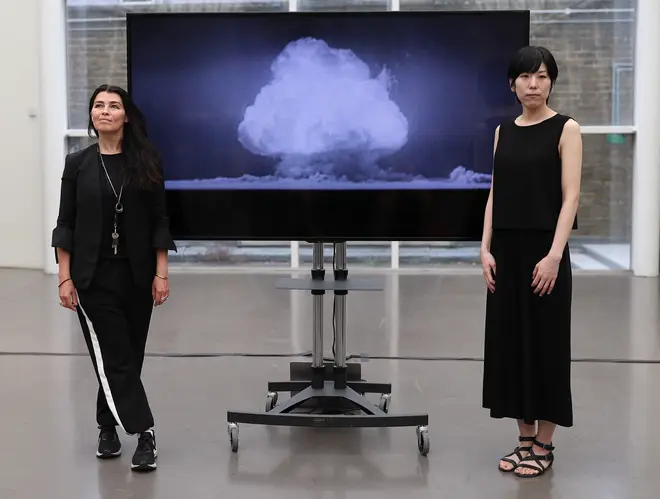
Daniel Barnett 9pm - 10pm
6 August 2020, 12:26
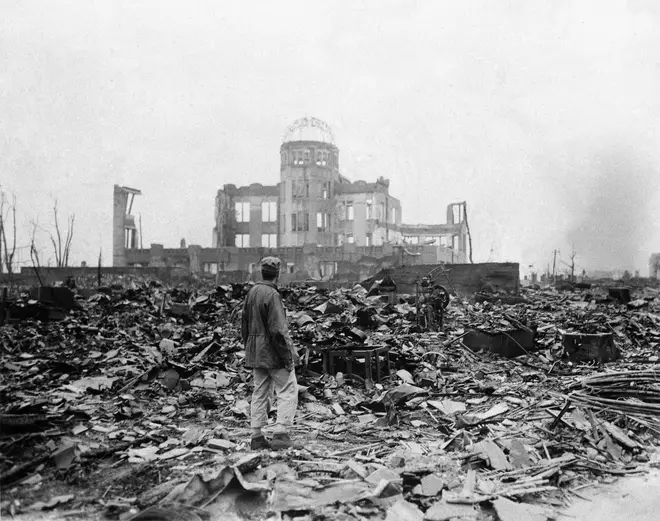
Survivors and world leaders are commemorating the 75th anniversary of the nuclear bombing of Hiroshima.
On the morning of 6 August 1945, Hiroshima was brought to its knees by the world's first atomic bombing.
The US bomb dropped by the now infamous Enola Gay plane destroyed the entire city and killed 140,000 people - mostly civilians including many children.
The US dropped a second bomb just three days later on Nagasaki, killing another 70,000 people, resulting in the surrender of Japan on 15 August and the end of the Second World War.
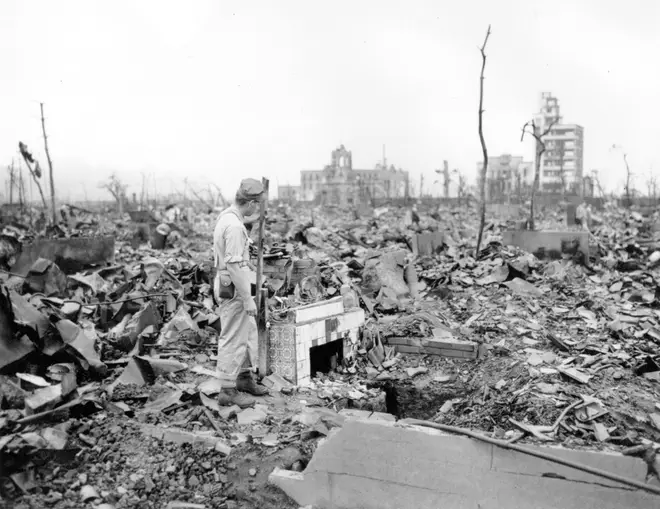
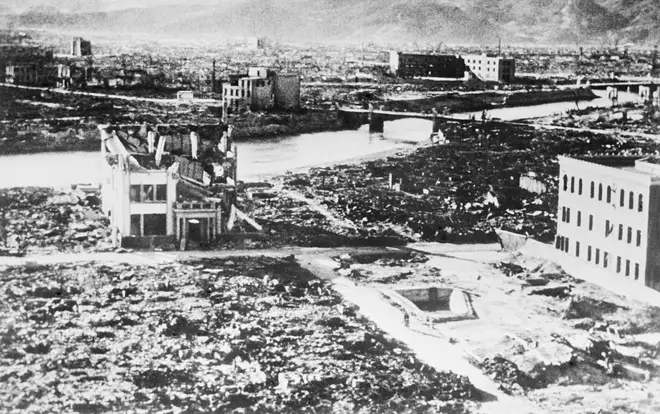
A dwindling number of survivors are remembering the event and are today joining countries across the globe to commemorate the 75th anniversary of the slaughter.
Survivors, their relatives and other participants marked the 8.15am blast anniversary on Thursday with a minute of silence.
Thursday's peace ceremony at the Hiroshima Peace Memorial Park was scaled down, with the number of attendants reduced to fewer than 1,000, or one-tenth of past years, because of the coronavirus pandemic.
Some survivors and their relatives visited and prayed at the park's cenotaph - where the registry of the atomic bombing victims is stored - hours before the ceremony began.
The inscription on the cenotaph reads: "Let all the souls here rest in peace for we shall not repeat the mistake."
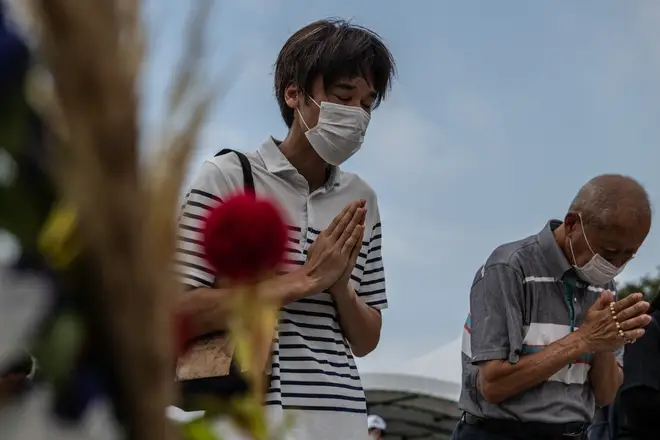
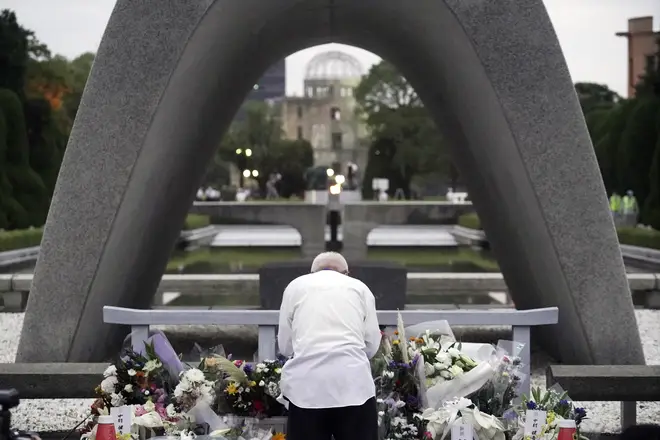
Among those taking part in remembrance events, Hiroshima mayor Kazumi Matsui urged world leaders to commit to nuclear disarmament, pointing out Japan's reluctance to join in global efforts to ban nuclear weapons.
In a speech, he highlighted what many survivors believe is the hypocrisy of Japan's government, which hosts 50,000 American troops and is protected by US nuclear weapons.
He said: "I ask the Japanese government to heed the appeal of the (bombing survivors) to sign, ratify and become a party to the Treaty on the Prohibition of Nuclear Weapons.
"As the only nation to suffer a nuclear attack, Japan must persuade the global public to unite with the spirit of Hiroshima."
Paying tribute, the secretary-general of the United Nations (UN) Antonio Guterres tweeted about a growing "nuclear menace" and reaffirmed the group's aim to create a nuclear-free world.
75 years since the atomic bombings of Hiroshima & Nagasaki, the nuclear menace is growing once again.
— António Guterres (@antonioguterres) August 6, 2020
We must confront this existential threat & pursue a nuclear weapon-free world. We owe this to the victims of the past & future generations. https://t.co/qYMe4NLJUq
Tokyo has not signed the nuclear weapons ban treaty - adopted by the UN in 2017 - despite its non-nuclear pledge.
The refusal to support the treat is an act that atomic bombing survivors and campaigners have labelled insincere.
About 136,700 people in Japan are certified as "hibakusha" - victims - and are entitled to regular free health checkups and treatment under a government programme.
Survivors have a higher risk of developing cataracts and cancer due to the radiation caused by the blast.
Health monitoring of second-generation hibakusha began recently, with Japan's government providing no support for the victims until a law was finally enacted in 1957.
In London, artists Es Devlin and Machiko Weston unveiled their digital art collaboration 'The End of the World', which was commissioned by the Imperial War Museum to mark the 75th anniversary.
